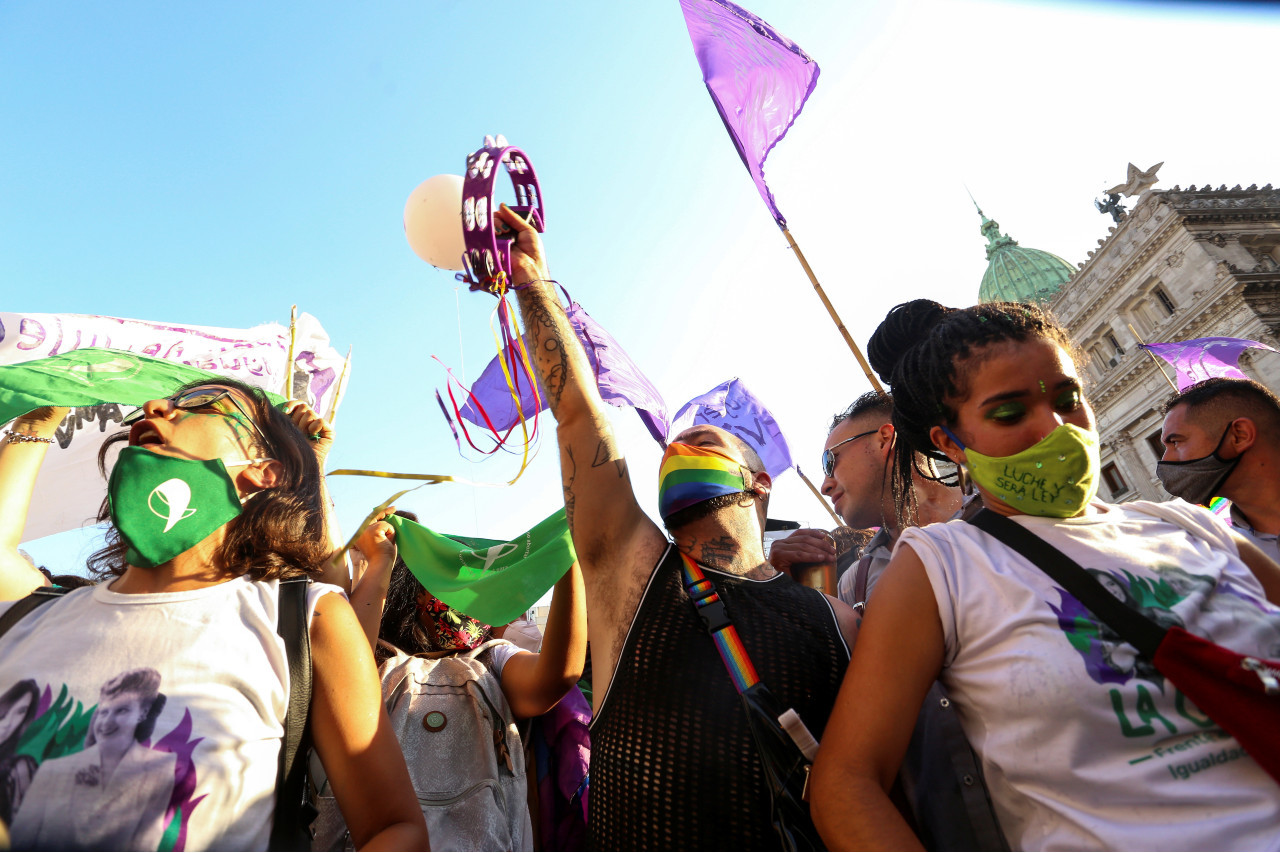Popular Reads
Top Results
Can't find what you're looking for?
View all search resultsPopular Reads
Top Results
Can't find what you're looking for?
View all search resultsArgentine Senate begins debate on landmark abortion bill
Approval would put Argentina among only a small group of Latin American nations that have taken similar action.
Change text size
Gift Premium Articles
to Anyone
A
rgentina's Senate on Tuesday began debating a landmark bill on whether to legalize abortion in a country where the Catholic Church has long held sway, with the vote expected to be razor-thin.
Approval would put Argentina among only a small group of Latin American nations that have taken similar action.
The highly-anticipated session was opened by Senate president Cristina Kirchner, who is also Argentina's vice-president.
Kirchner, a former two-term president, said there were 67 of the 72 senators present when the session opened at 4:00 p.m. either in person or by video link.
Some 58 people are registered to speak and the vote is not expected until deep into the night.
The bill was proposed by President Alberto Fernandez and passed the Chamber of Deputies on Dec. 11, despite fierce opposition from the Catholic Church and evangelical Christians.
"I'm Catholic but I have to legislate for everyone. Every year around 38,000 women are taken to hospital due to (clandestine) abortions and since the restoration of democracy (in 1983) more than 3,000 have died of this," said Fernandez.
The government says there are between 370,000 and 520,000 illegal abortions a year in Argentina, a country of 44 million.
A similar bill two years ago also passed the lower house but then floundered in the Senate by 38 votes to 31.
This bill aims to legalize voluntary abortions at up to 14 weeks. Terminations are currently only allowed in two cases: rape and danger to the mother's life.
Despite measures to prevent the spread of the coronavirus pandemic, both pro- and anti-abortion supporters demonstrated in front of parliament.
Pope Francis, who is Argentine, wrote a message on Twitter that, while not explicitly mentioning the vote, was interpreted by many as encouraging the senators to vote against the bill.
"The Son of God was born discarded to tell us that every person discarded is a child of God. He came into the world as a child does, weak and fragile, so that we can embrace our weaknesses with tenderness," wrote Francis.
Religious leaders from the Catholic Church and Christian Alliance of Evangelical Churches have called for their supporters "to unite to implore for respect and care for unborn life."
The vote is expected to be razor-thin, despite the governing alliance led by Fernandez making up 41 of the 72 Senate seats.
Not everyone in that alliance supports the bill, while the right-wing neo-liberal opposition is mostly opposed to it.
"In the Senate there are many votes that haven't yet been decided. They will only be known at the end," said Nancy Gonzalez, a senator with the governing coalition.
Should the vote result in a tie, the deciding lot would fall to Kirchner, who two years ago changed her stance from anti-abortion to pro-choice.
"This is the moment to finally approve the (abortion) law. Enough of the strategy of criminalization, stigmatization and curtailment of freedoms historically inflicted on pregnant women," Fabiola Heredia, the director of the Anthropological Museum at the University of Cordoba, wrote on social media.
Pro-choice activists have campaigned for years to change the abortion laws that date from 1921, adopting a green scarf as their symbol.
"We're going to be in the streets because we're going to have a party. But the Senate is impervious to the street, the decision will be made on the other side" of the parliament walls, said Maria Florencia Alcaraz, who has written a book about the fight to legalize abortion in Argentina.
Such changes have always been slow in Argentina: divorce was legalized only in 1987, sex education introduced in 2006, gay marriage approved in 2010 and a gender identity law passed in 2012.
The Catholic Church is fighting this issue all the way. On Saturday, Archbishop Oscar Ojea prayed to the Virgin Mary at the Lujan Basilica in Buenos Aires for help in preventing the law from passing.
"Blessed Virgin, pause your gaze on our legislators who must decide on an extremely sensitive issue, so that they may reflect with their minds and hearts," said Ojea at the mass.
In Latin America, abortion is only legal in Cuba, Uruguay and Guyana, as well as Mexico City.
In El Salvador, Honduras and Nicaragua, it is totally banned, and women can be sentenced to jail even for having a miscarriage.










